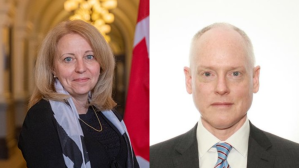‘It’s not realistic to say we’ll talk only when terrorism totally stops’
Former Foreign Secretary J N Dixit, who joined the Congress recently, says it’s time for border de-escalation, a two-track policy of pr...

Former Foreign Secretary J N Dixit, who joined the Congress recently, says it’s time for border de-escalation, a two-track policy of preparing for talks with Pakistan while countering terror with decisive, pre-emptive moves. Dixit, who is also an Indian Express columnist, told Rakesh Sinha that external support for India will diminish if she fails to be flexible and keeps delaying resumption of dialogue.
You joined the Congress because of Gujarat. Was that the only factor?
It wasn’t. I have often heard the criticism that middle class fellows like me who have lived a comfortable life sit around writing articles, giving lectures and value judgement from the margins. We don’t want to get actively involved in doing something concrete to remedy the very situation which we criticise. I thought maybe one should see what one can do. I joined the Congress because of its ideology and principles. My parents were Congress workers who worked with Mahatma Gandhi from 1921-1942. They went to jail and left politics on the day of independence. At some sub-conscious level, that too must have worked.
Many in the BJP have turned to you from time to time, yet you chose not to join them. What was it about the BJP that put you off?
Basically, it is their misinterpretation of Hinduism which underpins their ideology. I am very proud of being a Hindu but their whole approach to the plural society of India is rather unidimensional. Their vision of Indian nationalism is authoritarian. It is not an inclusive and tolerant ethos which is the essence of Hinduism. To compound matters, you have its related organisations like the VHP and Bajrang Dal and, to a lesser extent, the RSS. Their approach fuels political problems, economic problems. It’s not something one can agree with.
So you agree with what the Election Commission has done on Gujarat?
Absolutely, the Election Commission has not delayed the polls with any political motive. Jimmy Lyngdoh is a friend of mine, very slightly younger than me in service. Look at the type of accusations made against him, that he is a Christian and some nonsense Modi said. Is this the way serious people in a state talk?
And now the Central leadership is saying Modi is a good man. The Deputy Prime Minister is saying so. Some of his party workers are saying we must have a Narendra Modi in every state. We are a billion people, there are bound to be people with different political views. But it should not strike at the roots of the pluralistic image of India. And that is what these people are accidentally or deliberately eroding.
What should the Congress now do about Kashmir?
There are limited points on which I can express as a Congress partyman. The party president is the only one who went to Kashmir and campaigned. As far as I know, top leaders of no other national political party went there. Mrs Gandhi went inspite of advice not to go there. She went because she believed she should personally underline that Congress as a national party has a role in this important state at this critical juncture.
The aim of the Congress will be to be a part of a stable government. Being the oldest national party with the longest experience in dealing with Jammu and Kashmir and being part of the government will perhaps be helpful in negotiations with the Centre for the future political dispensation.
Is it time to resume talks with Pakistan?
I am not speaking for the Congress but my personal view is that while we must not show a great amount of anxiety to resume dialogue with Pakistan, we should certainly make preparations as early as feasible. Pakistan has also had elections. The likelihood is you will have to deal with a government led by Musharraf in the forseeable future. We must make preparations to resume dialogue. But it should be a step-by-step approach, not straightaway announcing we will have a political discussion.
But our government says Pakistan is still exporting terror and there can be no talks till that ends?
That’s where I think a two track policy is necessary. Response to major acts of terrorism should not only be decisive but my personal view is that we should now go into a pre-emptive mode. I am not saying pre-emptive across the border. When an incident happens, we must see if we can do something. While doing that on the one hand, we must give signals we are willing to resume the dialogue. It is not a realistic approach to say we will start the talks only when terrorism stops altogether. You cannot wish away Pakistan. The more you delay in resuming a dialogue or showing your willingness to be flexible, the more external support for you will diminish.
Will border de-escalation help? Do you think it’s time?
I can understand the deployment along the LoC. But at the international frontier, you have massive deployment. You have done it for months, it’s expensive, exhaustive. In my view, we must de-escalate from the international frontier. It is bad politics, it is bad defence policy to put troops on high alert for such a long time.
Could this form part of the agenda for the October 16 meeting of the National Security Council and National Security Advisory Board?
I think most of it will be devoted to post-Kashmir election strategy. Of course, Pakistan will form part of the agenda but recent statements from the government suggest that there is no inclination to move away from a very static stand which they have taken.
Jaswant Singh justified pre-emptive strikes recently.
I don’t agree with Jaswant Singh’s type of pre-emptive strike. You do not talk in advance about pre-emptive strikes, especially when you are in government. Advani says we will exercise the right of hot pursuit. You don’t say in advance. You do it and then say this is why we did it. Under international law, it is recognised you have the right of hot pursuit. Do whatever is necessary with the decisiveness and appropriate element of surprise. When the other side starts whining, then you say this is the reason you went and did this.
What happens if President Bush strikes Iraq? Where does that position India?
I don’t think we should get actively involved in the US campaign against Iraq. Our question should be what have you done against our terror.
Our government has been saying that about Pakistan…
We do not have to use the argument of an example of US action to do what is necessary for us. India should be not only self-reliant but its options should be exercised on the basis of independent objective judgement on what is good for her. There is no meaning in saying if you do it in Iraq, we can also do it in Pakistan.
Look at the European Union summit, it’s a foreign policy disappointment. Our Prime Minister goes all the way to European Union and this Prime Minister of Denmark equates us with Pakistan, doesn’t talk about terrorism and pontificates on India being restrained and talk to Pakistan. There has been a shortcoming in the preparatory work for the summit.
Photos



- 01
- 02
- 03
- 04
- 05




























